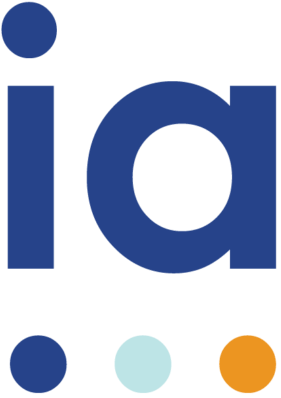Continuous Improvement, Strategic Services
Well, it’s that magical time of year again when thought leaders and experts from across the globe look into their crystal ball and try to predict what’s going to happen in the coming year. While many of the predictions are destined to flop, there is still something to be learned from the exercise.
Sometimes, it’s illuminating to see what we are all thinking about going into the new year. It’s also good to look back and see what actually happened, so we can see what we got right, and what we completely missed.
In the spirit of learning from the past, we wanted to highlight three trends we saw in 2023 among companies going through transformation, and using those trends as guidance, take one big swing for a prediction of what’s going to happen next year.
2023 Trend: Emphasis on behavior change
HR leaders recognize the need for strong change management centered on good communication and timely, accurate training and documentation. While structural and procedural changes are essential, they are often insufficient without corresponding shifts in employee behavior—and HR leaders have started to make that a key element in their change-management strategy.
In the past, organizations were somewhat content to excuse their poor processes or low adoption rates as “that’s just our culture.” While behavior is certainly a component of the culture, we have seen organizations make the mindset shift toward using behavior change to enhance the culture rather than excuse it.
We have seen a rise in the use of personas and “employee journeys” to help HR departments understand the behaviors of different parts of the population. They have also begun to integrate sentiment analysis and hard data to examine cause and effect to identify why people may or may not follow a process, which helps guide process improvement.
The reality is that employees are losing patience with change-management initiatives, often because they focus too much on process and structure and not enough on the people who will need to embrace the change. By focusing more on how employees think, feel and work within an organization, HR leaders have seen more successful transformations.
2023 Trend: Rise of people analytics and AI-driven decision-making
In 2023, you couldn’t escape coverage of AI. We even poked a little fun at the trendiness of the concept while still reminding people that AI is going to be a part of technology going forward. While many organizations are still trying to figure out the best way to leverage AI, one clear front-runner has been in the field of analytics.
People analytics is empowering HR professionals and leaders to make data-driven decisions, from talent acquisition and performance management to employee engagement. We have seen an increased partnership between HR and business intelligence groups working together to ensure any solutions HR selects have adequate capabilities for reporting and analytics. The dream of a more strategic HR is closer than ever as AI-driven tools streamline routine tasks, allowing HR teams to focus on the strategic initiatives that drive business success.
HR has just dipped its collective toe into predictive analytics playing a crucial role in workforce planning, helping organizations identify future talent needs and skills gaps. Talent acquisition, in particular, has continued to embrace generative AI algorithms to assist in the full hiring lifecycle, from creating job descriptions and job posts to sourcing and resume analysis.
While the stated goal is to both increase efficiencies and help ensure a more diverse and inclusive candidate pool, the jury is still out as to whether or not human bias influencing AI is helping in that regard, especially as we continue to wrestle with the ethical and moral obligations tied to its use.
2023 Trend: Global business process optimization
While we have always encountered organizations focused on finding better ways to do their work, 2023 saw a marked increase in HR leadership working cross-functionally with the business to take a more holistic approach to business process optimization. The inter-connectedness of how work is done means HR can no longer afford to work in a vacuum, and we have seen HR leaders fully embrace the need to think globally and act locally.
HR leadership is focused on business process standardization to build efficiencies and scalability, while recognizing the need to stay flexible to accommodate local legislative requirements and allow for cultural customs.
Hand in hand with the increased globalization of business process optimization has been a collective shift toward rethinking the HR service delivery model, with more organizations exploring a move to shared services. This enables HR to support a geographically dispersed employee population efficiently and effectively. When combined with a strong content-management strategy, a process optimization governance framework and a commitment to continuous improvement, HR will continue to increase its ability to help the organization meet its strategic goals.
Bold prediction for 2024: Increased focus on AI and RPA in HR
In recent years, there has been an increased HR focus on generative AI and robotic process automation (RPA). This was especially evident at this year’s HR Technology Conference, where nearly every session mentioned the potential and efficiency gains it could bring to the business. While not every organization is ready to fully embrace AI and RPA, we have seen more HR leaders explore ways to incorporate elements as they continue to optimize their work.
Specifically, we’ve seen organizations leveraging these technologies to streamline and enhance various HR processes, ranging from recruitment and onboarding to employee engagement and performance management. AI tools enable more efficient and unbiased candidate screening, helping HR professionals identify the best-fit candidates. Additionally, RPA is being employed to automate routine, time-consuming tasks, allowing HR teams to allocate more time to strategic initiatives and employee-centric activities, with an expected 10%-15% increase in productivity.
As refinement and improved integration between AI and RPA continues, HR will need to be ready to tap into this powerful tool to optimize workforce management and elevate the overall employee experience.
It’s all just guesswork
You’ll be encountering a lot of predictions over the next couple of months, and the thing to keep in mind is that we are all just reading the tea leaves. Trends suggest a certain direction, and then there is a global event that completely changes the environment. It’s an election year in the U.S., which influences the rhetoric even more. And somewhere there is bound to be an action that serves as the butterfly flapping its wings—shaping the world of HR without us even realizing.
The key is to stay informed and keep thinking. HR often sits at the intersection of people and technology, so it’s better to be aware and plan ahead rather than simply react and hope for the best.






